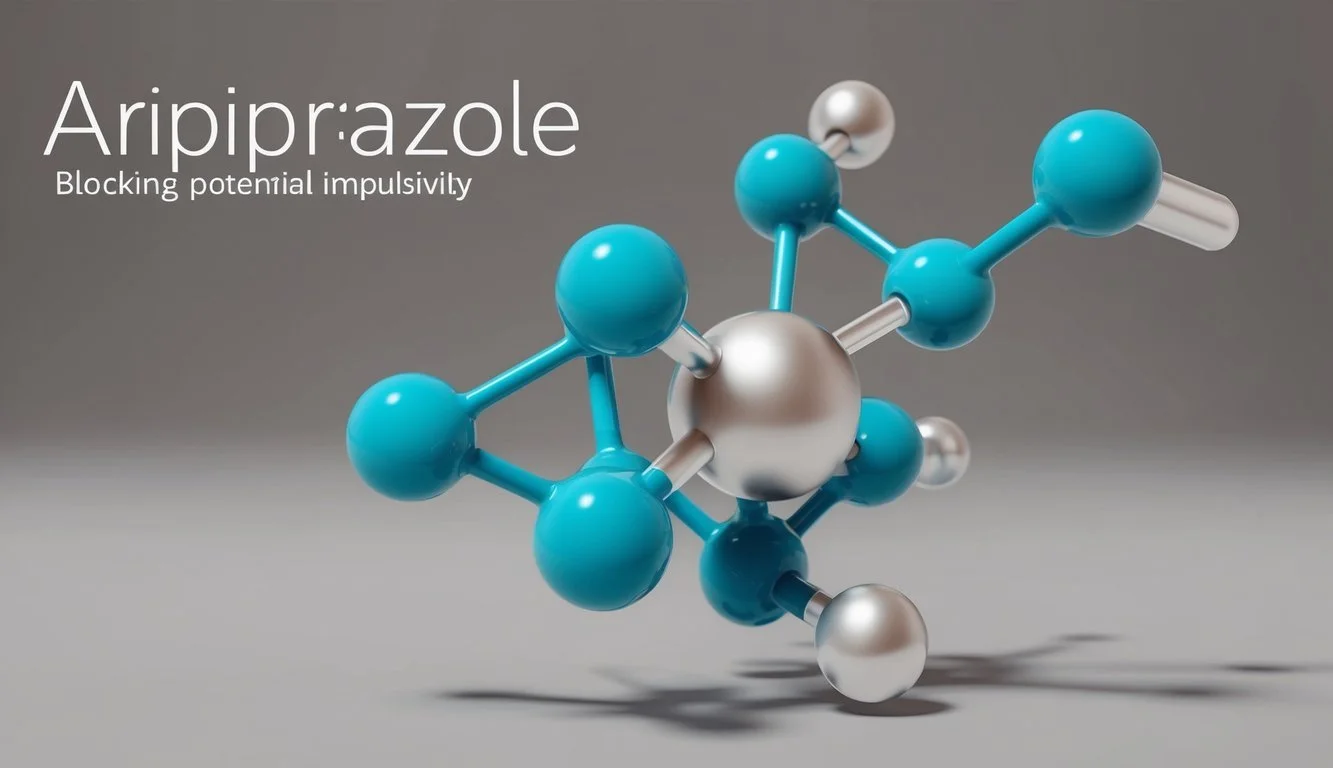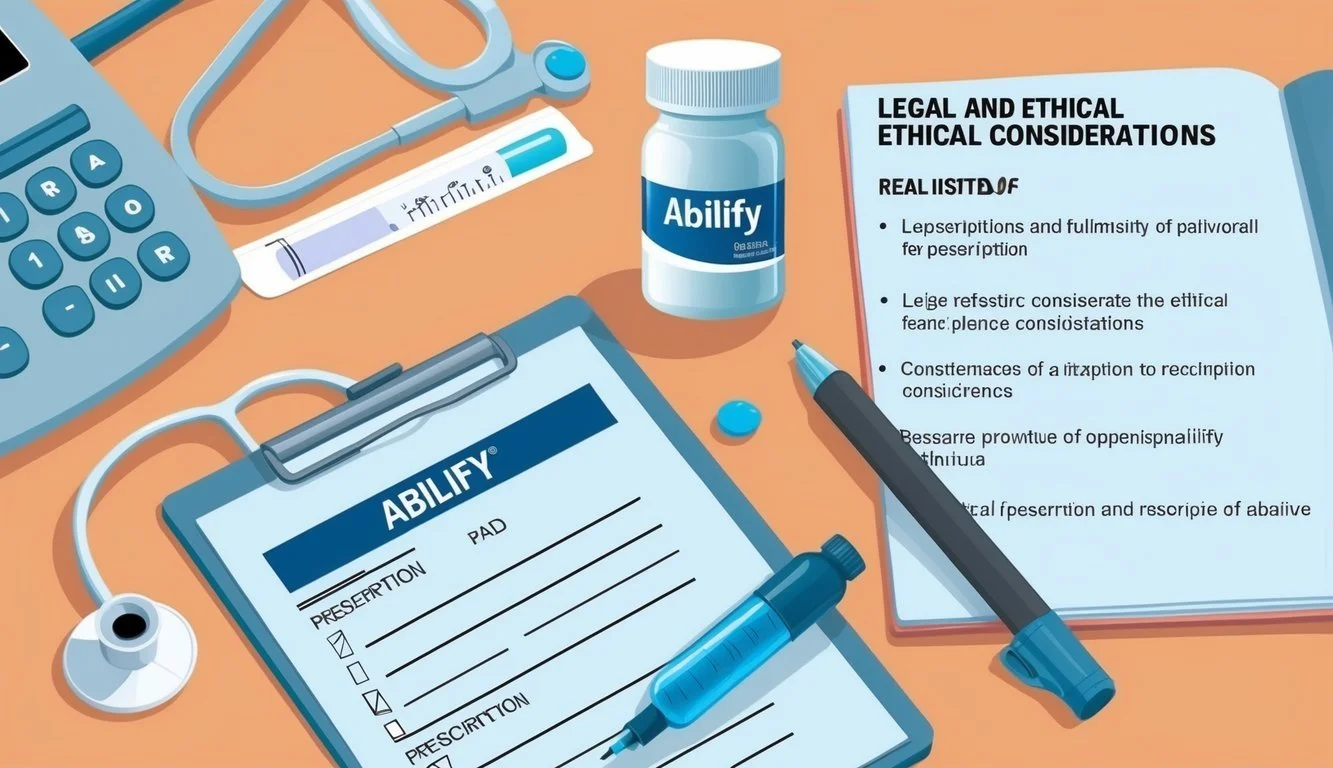Unmasking Abilify: Can This Medication Trigger Impulsive Behaviors?
Abilify, a medication used to treat various mental health conditions, has come under scrutiny for its potential to cause impulsive behaviors in some patients. The U.S. Food and Drug Administration (FDA) has issued warnings about this side effect, alerting healthcare providers and patients to be vigilant.
Aripiprazole, the active ingredient in Abilify, may lead to uncontrollable urges in rare cases, including compulsive gambling, shopping, eating, and sexual behaviors. These impulse control problems can have significant consequences for patients, affecting their personal lives, finances, and overall well-being.
While not all individuals taking Abilify will experience these side effects, certain risk factors may increase the likelihood of developing impulsive behaviors. Patients with a history of obsessive-compulsive disorder, impulse control issues, or addictive behaviors may be more susceptible to these effects and require closer monitoring during treatment.
Overview of Abilify (Aripiprazole)
Abilify, known generically as aripiprazole, is an antipsychotic medication used to treat various mental health conditions. It belongs to a class of drugs called atypical antipsychotics.
Aripiprazole works differently from other antipsychotics. It acts as a partial agonist at certain dopamine receptors, which means it can both activate and block these receptors depending on the brain's needs.
The FDA has approved Abilify for treating:
Major depressive disorder (as an add-on treatment)
Irritability associated with autism
Tourette's disorder
Abilify is available in several forms, including tablets, oral solution, and injectable formulations. The dosage varies depending on the condition being treated and individual patient factors.
Common side effects of Abilify may include:
Weight gain
Nausea
Vomiting
Constipation
Headache
Dizziness
While Abilify is generally considered effective for its approved uses, recent concerns have emerged regarding its potential to cause impulse control problems in some patients.
Impulsivity and Psychiatric Disorders
Impulsivity is a common feature across various psychiatric disorders. It manifests as actions without forethought or consideration of consequences.
In schizophrenia and bipolar disorder, impulsive behaviors can significantly impact quality of life and functioning. These disorders share overlapping symptoms and risk factors.
Certain medications used to treat mental health conditions may influence impulsivity. Aripiprazole, an antipsychotic medication, has been associated with impulse control issues in some patients.
The FDA has issued warnings about aripiprazole's potential to cause impulsive behaviors. These include:
Compulsive gambling
Excessive shopping
Hypersexuality
Binge eating
Patients with a history of impulse control disorders may be at higher risk. This includes those with:
Obsessive-compulsive disorder
Bipolar disorder
Impulsive personality traits
Substance abuse issues
The link between aripiprazole and impulsivity is thought to be related to its effects on dopamine signaling in the brain. Dopamine plays a crucial role in reward and motivation systems.
Healthcare providers should monitor patients taking aripiprazole for new or worsening impulsive behaviors. Patients should report any unusual urges or compulsions to their doctors promptly.
Clinical Evidence on Impulsivity and Abilify
Research has revealed a potential link between Abilify (aripiprazole) and impulse control disorders. The FDA identified 184 cases of possible association between impulse control disorders and aripiprazole through their Adverse Event Reporting System.
Pathological gambling was the most frequently reported issue, accounting for 164 cases (89%). Other impulse control problems included:
9 cases of hypersexuality
4 cases of compulsive buying
3 cases of compulsive eating
4 cases with multiple impulse control disorders
These findings prompted the FDA to issue a safety warning about new impulse-control problems associated with aripiprazole. The warning applies to both brand name and generic versions of the medication.
Studies suggest that aripiprazole's unique effect on dopamine transmission may contribute to changes in impulsive behavior. This mechanism differs from other medications used to treat Parkinson's disease, which have also been linked to impulsive behaviors.
Healthcare providers and patients should be aware of these potential side effects. Monitoring for signs of increased impulsivity or compulsive behaviors is important, especially when starting or adjusting aripiprazole treatment.
While these adverse effects appear to be rare, they can have significant impacts on patients' lives. Financial problems from gambling, relationship issues from hypersexuality, or health consequences from compulsive eating are possible outcomes.
Mechanism of Action for Aripiprazole
Aripiprazole's unique pharmacological profile sets it apart from other antipsychotic medications. Its primary mechanisms involve interactions with dopamine and serotonin neurotransmitter systems in the brain.
Dopamine System Effects
Aripiprazole acts as a partial agonist at dopamine D2 receptors. This means it can both activate and block these receptors, depending on the existing dopamine levels in the brain. In areas with high dopamine activity, aripiprazole acts as an antagonist, reducing dopamine signaling. In regions with low dopamine activity, it acts as an agonist, increasing dopamine transmission.
This balanced approach helps stabilize dopamine function across different brain areas. It may explain aripiprazole's effectiveness in treating both positive and negative symptoms of schizophrenia while potentially causing fewer side effects than full dopamine antagonists.
Serotonin System Influences
Aripiprazole also interacts with serotonin receptors, particularly as a partial agonist at 5-HT1A receptors and an antagonist at 5-HT2A receptors. These actions contribute to its mood-stabilizing and antidepressant effects.
The drug's affinity for serotonin 5-HT1A receptors is approximately 10 times higher than for dopamine D2 receptors. This strong serotonergic activity may help reduce anxiety and improve cognitive function in some patients.
Aripiprazole's combined effects on dopamine and serotonin systems contribute to its broad therapeutic profile in treating various psychiatric conditions.
Risk Factors for Impulsivity in Abilify Treatment
Certain factors may increase the likelihood of experiencing impulsive behaviors while taking Abilify (aripiprazole). These risk factors are important for patients and healthcare providers to be aware of.
Dosage plays a role in the potential for impulse control issues. Higher doses of Abilify are associated with a greater risk of impulsive behaviors.
A personal or family history of impulse control disorders can make individuals more susceptible. This includes conditions like gambling addiction, compulsive shopping, or hypersexuality.
Patients with pre-existing mental health conditions such as bipolar disorder or schizophrenia may be at higher risk for developing impulsive behaviors on Abilify.
Age is another factor to consider. Younger patients, particularly those under 25, may be more prone to experiencing impulsivity as a side effect.
Concurrent use of other medications that affect dopamine levels in the brain can potentially increase the risk of impulse control problems.
Substance use disorders, especially those involving alcohol or stimulants, may exacerbate the risk of impulsive behaviors in patients taking Abilify.
Individuals with a history of risk-taking behaviors or poor impulse control may be more vulnerable to these side effects.
Regular monitoring by healthcare providers is crucial for identifying early signs of impulsive behaviors in patients taking Abilify, especially those with multiple risk factors.
Measuring Impulsivity in Patients
Assessing impulsivity in patients taking Abilify (aripiprazole) requires careful evaluation using standardized tools and techniques. Clinicians employ various methods to measure impulsive behaviors and track changes over time.
One common approach involves structured interviews and diagnostic assessments. These allow healthcare providers to gather detailed information about a patient's impulse control and decision-making patterns.
Self-report questionnaires offer another valuable measurement tool. Patients complete surveys designed to evaluate different aspects of impulsivity, such as:
Urgency
Lack of premeditation
Lack of perseverance
Sensation seeking
Behavioral tasks can provide objective data on impulsive tendencies. These may include computerized tests that measure response inhibition, delay discounting, and risk-taking behaviors.
Clinicians often use a combination of these methods to gain a comprehensive understanding of a patient's impulsivity levels. Regular assessments help track any changes that may occur during Abilify treatment.
It's crucial for healthcare providers to establish baseline impulsivity measures before initiating aripiprazole therapy. This allows for more accurate monitoring of potential medication-related changes in impulse control.
Patients and their families play an important role in the assessment process. They should report any new or worsening impulsive behaviors to their healthcare team promptly.
Patient Management and Monitoring
Healthcare providers should closely monitor patients taking aripiprazole for any signs of new or increased impulsive behaviors. Regular check-ins and open communication are essential to identify potential issues early.
Patients and their families should be educated about the possible side effects of aripiprazole, including impulse control problems. This awareness can help them recognize and report concerning symptoms promptly.
If impulsive behaviors emerge or worsen, clinicians may consider adjusting the medication dose or discontinuing aripiprazole entirely. The decision should be made on a case-by-case basis, weighing the benefits and risks for each patient.
It's important to note that impulse control issues often appear within 30 days of starting aripiprazole and may resolve within 30 days of stopping or reducing the dose.
Clinicians should encourage patients to read the Medication Guide provided with their prescription. This guide contains valuable information about potential side effects and proper usage.
Monitoring strategies may include:
Regular psychiatric evaluations
Tracking of gambling habits or spending patterns
Assessment of sexual behavior changes
Observation of eating habits
By implementing these monitoring practices, healthcare providers can help mitigate the risk of impulse control disorders associated with aripiprazole use.
Medicinal Alternatives to Abilify
Several medication options exist as alternatives to Abilify for treating mental health conditions. These include other atypical antipsychotics, conventional antipsychotics, and non-pharmacological approaches.
Atypical Antipsychotics
Atypical antipsychotics are newer generation medications that can be used as alternatives to Abilify. Some common options include:
Risperidone (Risperdal)
Olanzapine (Zyprexa)
Quetiapine (Seroquel)
Ziprasidone (Geodon)
These medications work on similar neurotransmitter systems as Abilify but may have different side effect profiles. Risperidone, for example, is often used to treat schizophrenia and bipolar disorder.
Olanzapine can be effective for both manic and depressive episodes in bipolar disorder. Quetiapine is approved for schizophrenia, bipolar disorder, and as an add-on treatment for depression.
Conventional Antipsychotics
Conventional or typical antipsychotics represent an older class of medications that can be considered as alternatives to Abilify in some cases. Examples include:
Haloperidol (Haldol)
Chlorpromazine (Thorazine)
Fluphenazine (Prolixin)
These medications primarily block dopamine receptors in the brain. They can be effective for treating psychotic symptoms but may have a higher risk of certain side effects like movement disorders.
Haloperidol is often used for acute psychosis or agitation. Chlorpromazine was one of the first antipsychotics developed and is still used today for various conditions.
Non-pharmacological Treatments
Non-drug approaches can complement or sometimes replace medication in treating mental health conditions. Key options include:
Interpersonal Therapy
Family-focused Therapy
Electroconvulsive Therapy (ECT)
CBT helps patients identify and change negative thought patterns and behaviors. It can be effective for depression, anxiety, and other disorders.
Interpersonal therapy focuses on improving relationships and social functioning. Family-focused therapy involves working with family members to enhance support and communication.
ECT may be considered for severe depression or bipolar disorder that hasn't responded to other treatments. It involves applying electrical currents to the brain to trigger a brief seizure.
Impulsivity in Special Populations
Certain groups may be more susceptible to impulsivity side effects from Abilify. Patients with a personal or family history of impulse control disorders face increased risk.
Those diagnosed with obsessive-compulsive disorder, bipolar disorder, or addictive behaviors should be monitored closely. Individuals with impulsive personality traits may also require extra caution.
Age can play a role in vulnerability to impulsive behaviors. Young adults between 20-29 years old appear to report impulsivity more frequently as an Abilify side effect.
Gender differences have been observed, with females experiencing impulsive behaviors more often than males when taking this medication. The reasons for this discrepancy are not fully understood.
Duration of treatment impacts risk as well. Patients using Abilify for 5-10 years show higher rates of impulsivity compared to short-term users.
Concurrent medications may influence impulsivity. For example, taking Lamictal alongside Abilify has been associated with increased reports of impulse control problems.
Patients with pre-existing major depression seem particularly prone to developing impulsive behaviors on Abilify. This suggests an interaction between the drug and depressive symptoms.
Healthcare providers should assess individual risk factors before prescribing Abilify. Regular check-ins and open communication about any new urges or behaviors are crucial for these vulnerable populations.
Legal and Ethical Considerations in Prescribing
Prescribing Abilify requires careful consideration of legal and ethical obligations. Healthcare providers must inform patients about potential side effects, including impulse control issues.
Informed consent is crucial. Doctors should discuss the risks and benefits of Abilify, allowing patients to make educated decisions about their treatment.
Monitoring patients for behavioral changes is essential. Regular follow-ups help identify any emerging impulse control problems early.
Documentation plays a key role in managing liability. Thorough records of patient discussions, assessments, and treatment decisions protect both patients and providers.
Ethical prescribing practices involve:
Weighing risks vs. benefits
Considering alternative treatments
Tailoring medication to individual needs
Respecting patient autonomy
Legal considerations include:
Adhering to prescribing guidelines
Staying updated on FDA warnings
Reporting adverse events
Maintaining proper licensure and credentials
Providers may face liability if they fail to warn patients about known risks. This underscores the importance of staying informed about medication updates and communicating effectively with patients.
Balancing patient care with risk management is complex. Providers must navigate these challenges while prioritizing patient well-being and safety.
Conclusion
Evidence suggests a link between Abilify (aripiprazole) and increased impulsivity in some patients. Multiple reports and studies have documented cases of impulse control disorders associated with this medication.
The FDA has issued warnings about rare but serious impulse-control problems in patients taking Abilify. These issues can manifest as pathological gambling, compulsive eating, shopping, and sexual behavior.
Healthcare providers should monitor patients on Abilify for signs of new or worsening impulsive behaviors. Patients experiencing these symptoms should consult their doctor promptly.
While Abilify remains an effective treatment for various mental health conditions, awareness of potential side effects is crucial. Balancing the benefits and risks of medication is an important aspect of psychiatric care.
Further research is needed to fully understand the relationship between Abilify and impulsivity. This will help improve patient care and inform future treatment guidelines.








